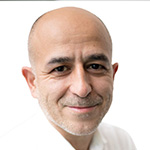University of Vienna proves safety of TPS-Therapy
Further research on Transcranial Pulse Stimulation published
University of Vienna proves safety and tolerability of TPS-Therapy for patients
.
What we and our colleagues working with Transcranial Pulse Stimulation – and, of course, those already treated and their relatives – know from everyday practice with TPS has now been confirmed in a new research paper by Viennese researchers at the Medical University of Vienna, Department of Neurology, within the framework of the large placebo-controlled studies on Transcranial Pulse Stimulation currently underway:<! –more–> Transcranial Pulse Stimulation is not only remarkable and promising in its efficacy for Alzheimer’s dementia, Parkinson’s disease and other neurodegenerative disorders including long covid and neuro covid symptoms, but it is a safe treatment procedure and above all well tolerated. If one looks at the well-known and often described (also long-term) side effects of drug interventions, this is another and not negligible plus of TPS.
Transcranial Pulse Stimulation: “First Clinically Approved Neuromodulation System with Great Potential”
In their retrospective analysis, the researchers examined clinical safety data from 101 subjects suffering from various neurodegenerative diseases, including dementia, Parkinson’s disease, and mixed or related forms of the disease. In addition to the clinical examination parameters used, 1010 questionnaires were subjectively completed by the subjects and analyzed by the researchers.
In their publication, the researchers again emphasized that Transcranial Pulse Stimulation, as the first clinically approved neuromodulation system, has been shown to lead to clinical improvements in the majority of patients: in demonstrably leads to clinical improvements in their disease state and that this non-invasive form of brain stimulation – in contrast to other stimulation methods that either require surgical intervention or can only reach a few areas of the brain in terms of the extent of their effect – has “great potential in a neuroscientific, translational and purely clinical context” (translational = basic research combined with the practical application of research findings in patient care). In this study discussed here, however, the focus was solely on patient:ing safety and not on the efficacy of Transcranial Pulse Stimulation per se!
TPS-Therapy as a treatment method that is safe for patients and virtually free of side effects
Safety assessments in studies with human subjects:include, for example, structural MRI scans before and after stimulation sessions, neurological follow-up, and/or, in the clinical setting, monitoring of physiological parameters during treatment.
As a result, the Vienna researchers found that Transcranial Pulse Stimulation is a safe application for patients with good overall tolerability. TPS is within safe limits and “no relevant adverse events” were reported. Short-term side effects such as a feeling of pressure on the head or slight subjective pain at the stimulation site were rare and only temporary. Of particular importance here, similar results were found in the control group that had been treated with sham applications, indicating a “remarkable placebo effect,” the researchers said.
Conclusion on our part: What we experience in the daily use of Transcranial Pulse Stimulation in practices is now also increasingly supported by clinical studies and their data: The TPS is an effective and safe treatment method, which is for the patient:in addition – apart from the high therapeutic benefit – almost always pleasant and without side effects and after-effects. This is one of the reasons why TPS therapy is an optimal alternative that can also help to adjust the administration of medications, which are usually accompanied by strong and varied side effects, in a different way in the future.
A detailed report and summary of the new data will be here with us shortly.
Source:
Who, by the way, would like to see the work of Radjenovic et. al. independently funded by the Herzfelder Foundation, conducted according to the guidelines of the Declaration of Helsinki, approved by the Ethics Committee of the Medical University of Vienna and peer-reviewed by the journal “Brain Science” already now – click here for the publication:
https://www.researchgate.net/publication/363739822_Safety_of_Clinical_Ultrasound_Neuromodulation


